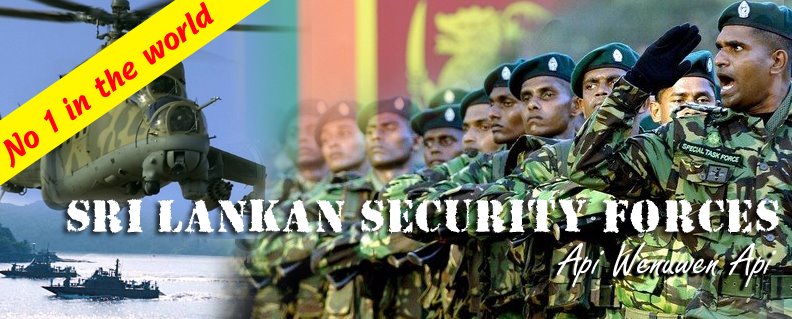(Walter JAYAWARDHANA)
UN Under Secretary General Sir John Holmes said that although the LTTE leadership says that the Tamil civilians accompanied them into the war zone voluntarily and they do not want to leave, there are continuing reports of shooting at fleeing civilians, destroying boats to prevent them leaving and forcing them to fight against their will by the LTTE.
He said it is clear that the LTTE is refusing to let people flee, though many are managing to escape somehow. He added: ' I fear the combatants may be gearing up for a final confrontation. This is a very grave situation.'
Sir John Holmes writing in the London'? Guardian newspaper of April 8 said they have told the terrorist group that civilians trapped by the fighting in the North must be allowed a free choice of whether to leave or stay.
The Under Secretary General for Humanitarian Affairs of the United Nations said, the LTTE's leadership claims the civilians in the conflict zone do not want to leave because they accompanied the LTTE voluntarily in the first place and are afraid of government reprisals. Yet there are continuing reports that the group's fighters are shooting at fleeing civilians, limiting fishing and sabotaging boats that might be used to escape, and forcing people to fight against their will.
Holmes further added, civilians trapped by the fighting must be allowed a free choice of whether to leave or stay, as we have made clear to the LTTE. If the LTTE truly has the best interests of the Tamil people at heart, they should contribute to ending this unnecessary civilian suffering.
There have been many hundreds of civilian deaths caused by firing from both sides, though exact numbers and who fired what and when are impossible to verify. It is clear that the LTTE is refusing to let people flee, though many are managing to escape somehow, and I fear the combatants may be gearing up for a final confrontation. This is a very grave situation. As a full-scale, long-term ceasefire is unlikely to be agreed now, the only way to get the civilians out of harm's way is a temporary humanitarian lull, during which aid workers and relief supplies must be allowed into the conflict zone, and those who want to leave must be given the chance to do so.
He also wrote: Both sides have a duty to bring this about. The LTTE's leadership claims the civilians in the conflict zone do not want to leave because they accompanied the LTTE voluntarily in the first place and are afraid of government reprisals. Yet there are continuing reports that the group's fighters are shooting at fleeing civilians, limiting fishing and sabotaging boats that might be used to escape, and forcing people to fight against their will. Civilians trapped by the fighting must be allowed a free choice of whether to leave or stay, as we have made clear to the LTTE. If the LTTE truly has the best interests of the Tamil people at heart, they should contribute to ending this unnecessary civilian suffering.
For its part, the government of Sri Lanka must stick to its promise of not using heavy weapons while the fighting lasts, and hold off from any final attack in the conflict zone while the pause is negotiated. With so many people packed into such a small area, further military action not only risks more civilian deaths and injuries but also threatens to undermine the government's credibility with the international community and the national groups with whom it must soon seek reconciliation.
At this critical juncture independent aid workers must be allowed to bring in more aid, assess the situation and help civilians to decide their own fate. Indeed, unless better access for supplies and aid workers is urgently secured, the ravages of disease, untreated wounds and hunger will kill many more people.
The government must also show flexibility by recognising that many of the civilians in the conflict zone have genuine fears about possible mistreatment, whether the government deems them well-founded or not. It must also make clear that the safety of all civilians will be guaranteed, and that all those laying down their arms will be treated in accordance with the rule of law.
A vital part of this is ensuring that treatment of internally displaced people is in line with international standards - including the need for transparent screening and registration processes, guaranteed freedom of movement, and commitments to ensure speedy return to their places of origin. If the UN can play a role in bringing this about and monitoring it with other international groups, it is fully ready to do so.









No comments:
Post a Comment